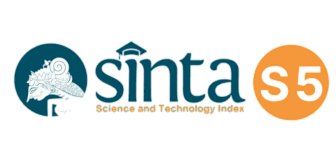Analysis of political reciprocity in the coalition strategy of Prabowo-Gibran in the 2024 general election
Downloads
This study aims to examine the political coalition between Prabowo Subianto and Gibran Rakabuming Raka in the 2024 Presidential Election, using the concepts of political reciprocity and social exchange theory. The coalition brings together two figures with distinct characteristics and voter bases: Prabowo, an experienced political figure with a conservative voter base, and Gibran, a younger figure targeting progressive voters, particularly from the millennial and Gen Z generations. This research highlights the relationship between the two figures in forming a mutually beneficial coalition through strategic political resource exchanges. The introduction outlines the importance of political coalitions in the 2024 election as a key factor for victory. The coalition between Prabowo and Gibran aims to combine their political strengths and maximize electoral opportunities. The social exchange theory applied in this study reveals that the coalition is essentially a transaction involving the exchange of political resources between the involved parties. This includes political support, legitimacy, and access to a wider voter network. Additionally, the study investigates the role of media in introducing and shaping the political image of both figures. Mass media, both traditional and social, plays a crucial role in shaping public perception of the political alliance and influencing voter opinions ahead of the election. The analysis also examines how the coalition impacts the dynamics of political parties, with Gerindra and Golkar playing pivotal roles in supporting the pair. By applying political reciprocity and social exchange theories, this study offers insights into how political alliance strategies function in the context of Indonesia's 2024 election.
Copyright (c) 2025 Muhammad Dzaky Ramadhan

This work is licensed under a Creative Commons Attribution-NonCommercial-ShareAlike 4.0 International License.
- Copyright of this journal is possession of Editorial Board and Journal Manager, by the knowledge of the author, while the moral right of the publication belongs to the author.
- The formal legal aspect of journal publication accessibility refers to Creative Commons Atribusi-Non Commercial-Share Alike (CC BY-NC-SA), implies that publication can be used for non-commercial purposes in its original form (cannot be modified).
- Every publication (printed/electronic) are open access for educational purposes, research, and library. Other than the aims mentioned above, the editorial board is not responsible for copyright violation.












